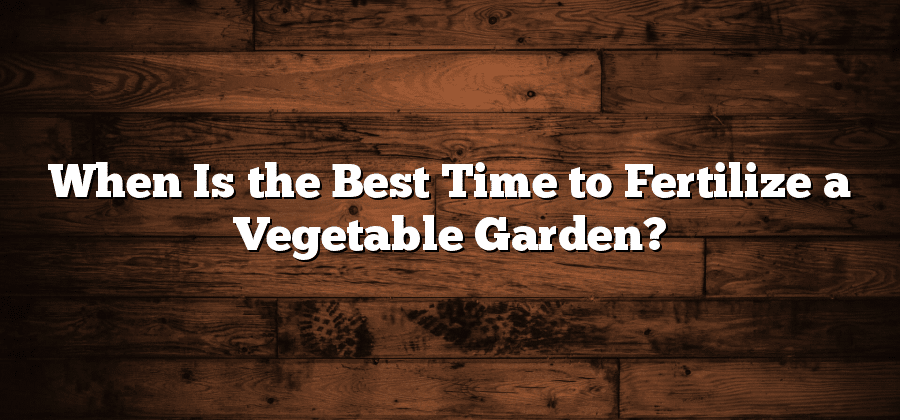Understanding the Nutritional Needs of Vegetable Gardens
A successful vegetable garden requires an adequate supply of essential nutrients to support optimal plant growth and development. Understanding the nutritional needs of your vegetable garden is crucial in ensuring that your plants receive the right balance of nutrients throughout their growth cycle. Nutrients such as nitrogen, phosphorus, and potassium, commonly referred to as NPK, play a significant role in promoting healthy foliage, strong root systems, and robust fruit production.
Nitrogen is a vital nutrient that aids in the production of chlorophyll, the pigment responsible for photosynthesis. Without sufficient nitrogen, plants may exhibit stunted growth, yellowing leaves, and decreased fruit yield. Phosphorus, on the other hand, is essential for root development, nutrient uptake, and energy transfer within the plant. Insufficient phosphorus can result in weak root systems and poor overall plant health. Lastly, potassium is necessary for various aspects of plant growth, including disease resistance, regulation of water content, and the activation of enzymes involved in essential metabolic functions. By ensuring your vegetable garden receives adequate amounts of these nutrients, you can foster healthier plants and maximize yields.
The Importance of Timing in Fertilizing Vegetables
Timing plays a crucial role in the success of fertilizing vegetables. It is important to understand the growth stages of vegetables and apply fertilizers accordingly. Fertilizing at the right time ensures that plants receive the necessary nutrients when they need it the most.
Early-season fertilization is one technique that can greatly benefit vegetable gardens. By providing nutrients to plants at the beginning of their growth cycle, they are given a strong foundation to thrive. This early boost also promotes healthy root development and overall plant vigor. However, it is essential to pay attention to the specific needs of different vegetable varieties, as some may require different fertilizing schedules.
Assessing Soil Conditions for Effective Fertilization
Soil assessment plays a crucial role in ensuring effective fertilization for vegetable gardens. By analyzing the soil conditions, gardeners can gain valuable insights into the nutrient levels and pH balance of the soil. This information is essential for making informed decisions about the type and quantity of fertilizers to be applied.
One aspect to consider when assessing soil conditions is the nutrient content. Various nutrients, such as nitrogen, phosphorus, and potassium, are essential for plant growth and development. Through soil testing, gardeners can determine the nutrient levels in their soil and identify any deficiencies or excesses. This knowledge enables them to tailor their fertilization approach to meet the specific nutritional needs of their vegetables, ensuring optimal plant health and productivity. Additionally, soil testing can reveal the presence of other elements, such as calcium, magnesium, and trace minerals, which are also vital for plant nutrition. By understanding the nutrient content of the soil, gardeners can make targeted fertilizer choices to supplement any deficiencies and improve overall soil fertility.
Identifying the Key Growth Stages of Vegetables
When it comes to growing vegetables, understanding the key growth stages is vital for successful cultivation. Each vegetable plant goes through several distinct phases of growth, which require specific care and attention. By being able to identify these growth stages, gardeners can provide the necessary resources and interventions to ensure optimal plant health and yield.
The first growth stage that vegetables go through is germination. This is when the seed begins to sprout and the plant starts to emerge from the soil. During this stage, it is important to keep the soil moist and provide adequate sunlight for the young seedling to develop. Once the seedling has established its roots and produced its first set of true leaves, it enters the vegetative stage. This is when the plant focuses on leaf and stem development, using energy from photosynthesis to grow and strengthen its infrastructure. During the vegetative stage, it is crucial to provide the plant with sufficient water, nutrients, and sunlight to support healthy foliage growth. By understanding and recognizing these key growth stages, gardeners can effectively tailor their care practices to meet the specific needs of their vegetable plants.
Early-Season Fertilization Techniques for Optimal Plant Health
In order to achieve optimal plant health, it is crucial to implement proper early-season fertilization techniques in your vegetable garden. Early-season fertilization sets the foundation for strong and vigorous plant growth, ensuring a bountiful harvest. One of the key techniques to consider is applying a balanced fertilizer that provides essential nutrients such as nitrogen, phosphorus, and potassium. These macronutrients play a vital role in promoting overall plant development, root growth, and the production of flowers and fruits.
Another vital aspect of early-season fertilization is timing. It is crucial to apply fertilizer at the right stage of plant growth to maximize its effectiveness. Generally, it is recommended to apply the first round of fertilizer when the plants have established a strong root system but are not yet actively producing flowers or fruits. This ensures that the nutrients are readily absorbed by the plants and are utilized for the growth of healthy foliage. Additionally, it is important to note that over-fertilization can be detrimental to plant health. Therefore, it is advisable to follow the recommended application rates and guidelines provided by manufacturers or consult with a horticulturist to avoid nutrient imbalances and potential damage to your plants. Implementing these early-season fertilization techniques will help you establish a solid foundation for your vegetable garden, promoting strong and healthy growth throughout the growing season.






